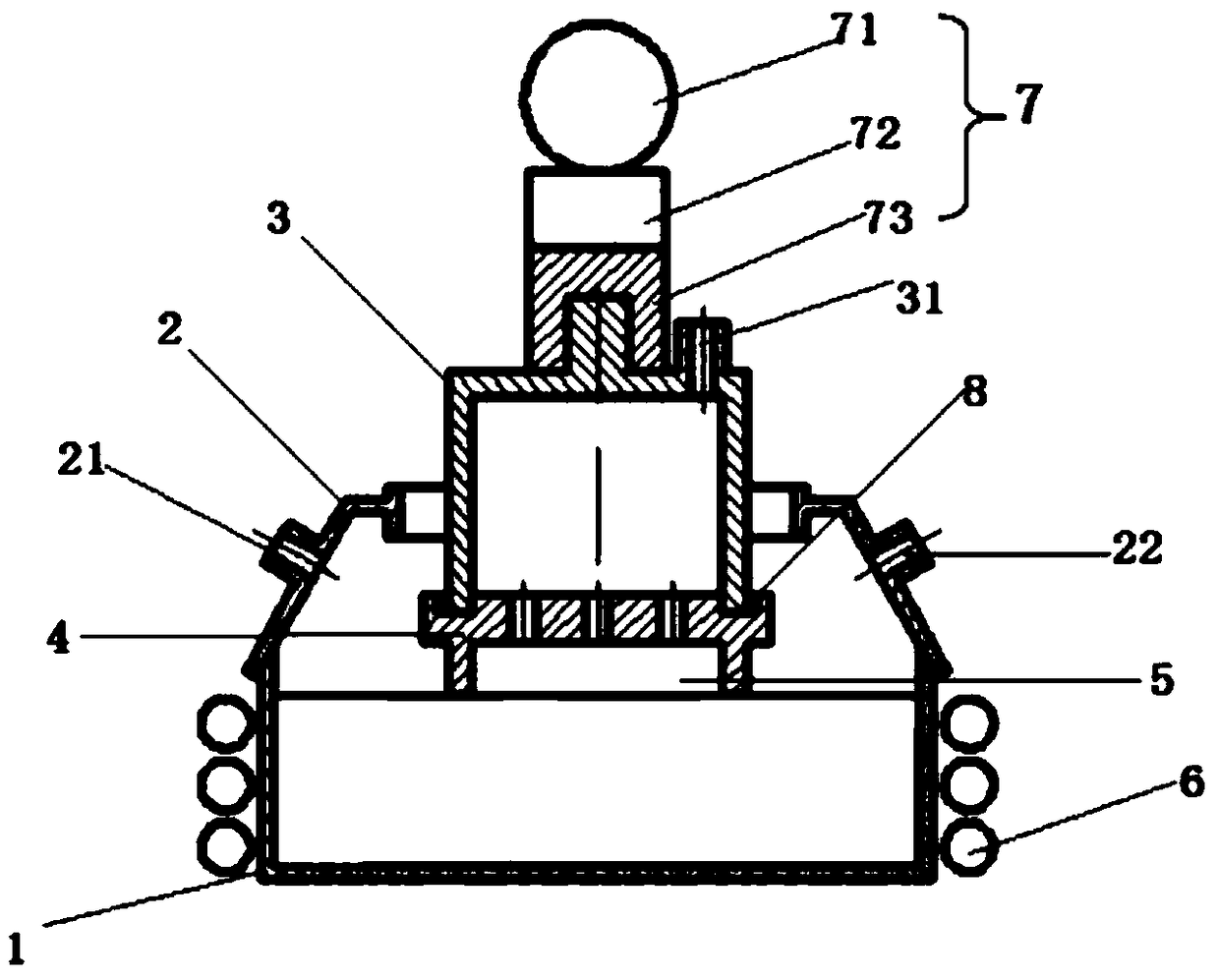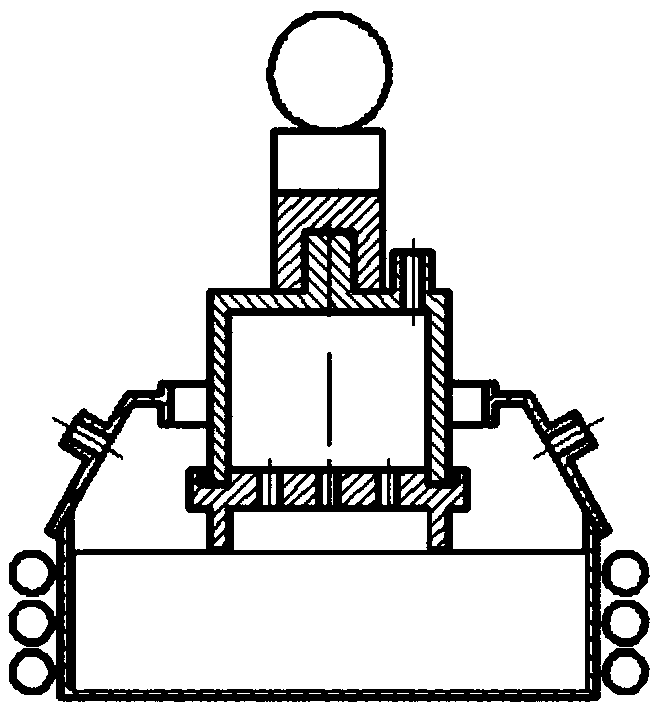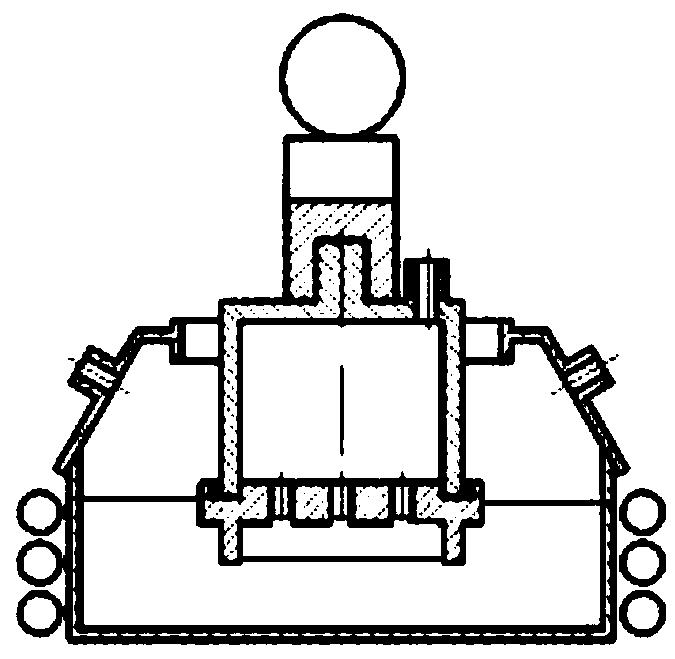Die pressing device adopting tin liquor to support vacuumizing for glass and die pressing process of die pressing device
A vacuuming device and vacuuming technology, applied in glass pressing, glass forming, glass manufacturing equipment, etc., can solve the problems of uneven heating or annealing, cracks, warping and deformation of the preform, and improve the filling rate Inconsistency, increased contact area, and improved heating efficiency
- Summary
- Abstract
- Description
- Claims
- Application Information
AI Technical Summary
Problems solved by technology
Method used
Image
Examples
Embodiment 1
[0044] Refer to attached figure 1 , attached Figure 2a -2d and attached Figure 4 , this embodiment discloses a glass molding device with tin liquid and vacuum pumping, including:
[0045] The liquid tin container 1 is filled with liquid tin.
[0046] Cover 2, cover 2 is arranged on the open end of tin liquid container 1, and encloses molding space with tin liquid container 1; Offers on the cover 2 the nitrogen inlet hole 21 that is used to pass into nitrogen and is used for discharging described Oxygen exhaust holes 22 in the molding space; a circular through hole 23 for the passage of the sleeve 3 is provided at the center of the cover 2 , and the diameter of the circular through hole 23 is not smaller than the maximum diameter of the mold 4 .
[0047] Sleeve 3, one end of the sleeve 3 is closed, one end is open, and its open end is set through the top of the cover 2 towards the liquid surface of the tin liquid, and is slidably connected with the cover 2; the closed end ...
Embodiment 2
[0063] Refer to attached figure 1 , attached Figure 3a -3d and attached Figure 4 , this embodiment takes the manufacture of micro-columnar glass arrays as an example, the device used is the same as that of embodiment 1, in the specific preparation process, except that the molding process of S3 is different from that of embodiment 1, the rest of the steps are the same as that of embodiment 1.
[0064] Specifically, the specific process of S3 molding in this embodiment is:
[0065] Heat the viscosity of glass 5 to 10 6 ~10 8 After dPa·s, start the sleeve drive device 7, the drive sleeve 3 continues to move towards the bottom wall direction of the tin liquid container 1, until the mold 4 and the glass 5 move below the tin liquid level, start the vacuum device to further reduce The inner pressure of the lower sleeve increases the pressure difference between the sleeve 3 and the molding space. After standing still for 1 min, the glass 5 is filled into the mold 4 to form a mi...
PUM
 Login to View More
Login to View More Abstract
Description
Claims
Application Information
 Login to View More
Login to View More - R&D
- Intellectual Property
- Life Sciences
- Materials
- Tech Scout
- Unparalleled Data Quality
- Higher Quality Content
- 60% Fewer Hallucinations
Browse by: Latest US Patents, China's latest patents, Technical Efficacy Thesaurus, Application Domain, Technology Topic, Popular Technical Reports.
© 2025 PatSnap. All rights reserved.Legal|Privacy policy|Modern Slavery Act Transparency Statement|Sitemap|About US| Contact US: help@patsnap.com



